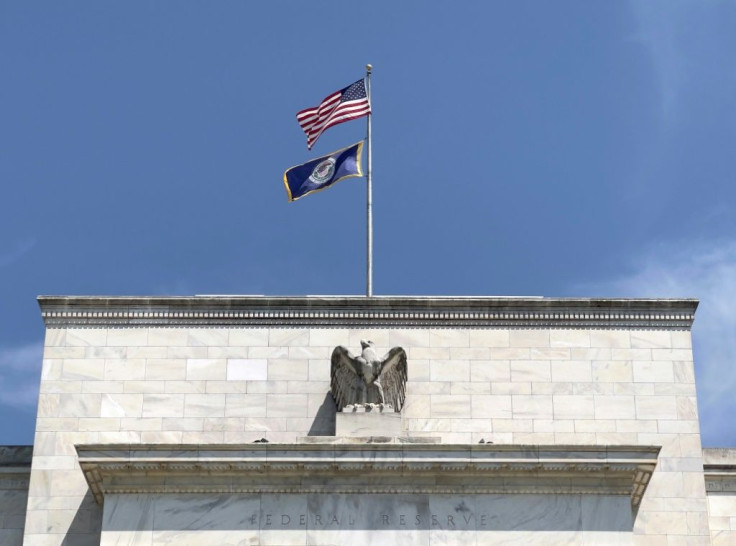Fed Opens Policy Meeting As Markets Awaits Taper Signal
The Federal Reserve opened its two-day policy meeting on Tuesday, with investors around the world awaiting a signal on when the central bank will begin pulling back on its stimulus policies.
The policy-setting Federal Open Market Committee (FOMC) is faced with a balancing act as a healthy recovery from the impact of the Covid-19 pandemic has fueled rising prices, but employment has not fully rebounded in the world's largest economy.
The Fed has said its benchmark borrowing rate will remain at zero for some time, so the first step for the central bank will be to start to slow its massive monthly bond buying program, which is expected before the end of the year.
Investors and officials worldwide will be watching Federal Reserve chief Jerome Powell's press conference on Wednesday to see if he provides further details on the taper plan.
When the pandemic hit in March 2020, the Fed slashed its benchmark interest rate and began buying bonds and other securities to ease lending conditions and ensure the financial system would not seize up.
Mickey Levy of Berenberg Capital Markets said the taper announcement "would be a welcome signal that the Fed is beginning to unwind its emergency monetary policies" but it would be "a tiny step that will have an imperceptible impact on the economy."

Monthly asset purchases currently total at least $80 billion in Treasury securities and $40 billion in agency mortgage-backed securities.
The Fed's actions aimed "to prevent the COVID economic recession from morphing into a financial crisis, which is even harder to recover from. It worked," economist Diane Swonk of Grant Thornton said.
But now she and other market-watchers, as well as hawks on the FOMC, are concerned the stimulus is creating asset bubbles even as inflation accelerates, and may prove more lasting than Powell had predicted.
The Fed's preferred inflation measure, the personal consumption expenditures (PCE) price index, rose at a rapid 4.2 percent pace in July, far above the two percent goal, even as employment gains have slowed and the economy is still short about five million jobs compared to February 2020.
"Powell has remained defiantly optimistic about the economy's ability to weather new variants and deal with the inflation triggered by reopening businesses," Swonk said.
But while inflation may abate, as he has predicted, "that may not occur soon enough for the Fed to hold off on rate hikes," Swonk said.
© Copyright AFP 2024. All rights reserved.











